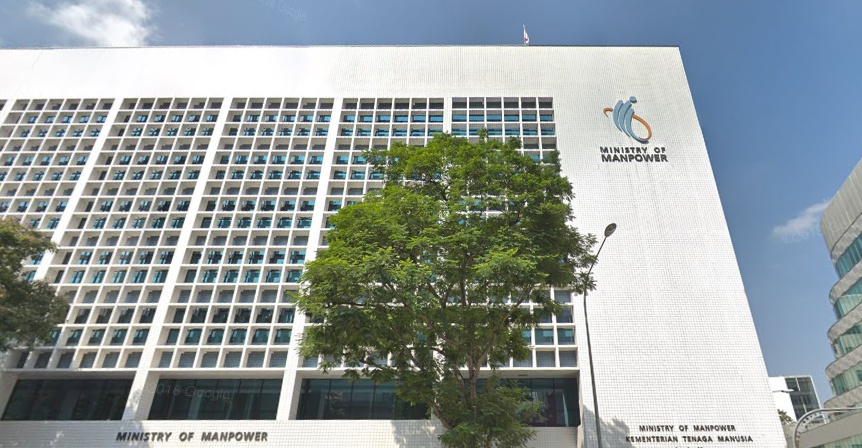Employees in Singapore will now be able to get higher compensation amounts more quickly when they file for workplace injury compensation under the updated Work Injury Compensation Act (WICA).
The updated Act was passed after its second and third readings in Parliament on Sep. 3.
Here are the updates to WICA, as laid out by Minister of State for Manpower Zaqy Mohamad.
1. Faster and simpler claims process
Under the updated Act, an injured employee (or his or her representatives) will not need to specially file a claim for serious injury or death.
The Ministry of Manpower (MOM) will start processing the claim once an accident report is made.
Currently, claimants have to submit a claim together with their payslips (which is used to compute their average monthly earnings) in order to receive permanent incapacity compensation for serious injuries or death.
Following this amendment, MOM will be able to use industry salary data to compute the compensation amount.
In the event of permanent incapacitation, doctors now do not need to wait for the injury to fully stabilise for the claim to be assessed in terms of how incapacitated the employee is. Instead, they can issue a "current incapacity" assessment at the six-month mark.
According to the ministry, up to 80 per cent of permanent incapacity cases are resolved within six months of the accident.
The remaining 20 per cent, or 1,300 claims per year, take longer than six months to process, MOM said.
Delaying the assessment will result in uncertainty for claimants, and in the case of foreign workers, the inability to return home.
2. Better compensation and protection for employees
Currently, employers are required to purchase insurance for all manual employees, and non-manual employees in factories who earn up to S$1,600 per month.
Under the amendment, the mandatory insurance will be extended to non-manual employees who do not work in factories.
The salary threshold will be increased from S$1,600 to S$2,100 in April 2020. It will then increase to S$2,600 in Apr 2021.
The maximum compensation limit for death and total permanent incapacity will also be raised. The current maximum compensation for death is S$204,000. It will increase to S$225,000.
The maximum compensation for permanent incapacity is currently S$262,000. It will be raised to S$289,000.
If an employee is injured but given light duties instead of an MC, he or she will be able to claim the full sum of their average monthly earnings for the first 14 days of their MC and/or light duties.
After that, two-thirds of their average monthly earnings can be claimed, up to one year.
Currently, employees can only claim compensation if they are on MC.
The limits for medical expense claims will be raised to S$45,000 or within 1 year from date of accident, whichever is reached first.
3. Insurers who sell WICA-compliant policies will need to be licensed
Under the amendment, only designated insurers who are licensed by the government will be allowed to sell Workplace Injury Compensation Act insurance policies.
The licensing allows MOM to impose additional conditions such as requiring third party audits and instituting penalties for non-compliance. Licensed insurers will also have to adhere to processing time standards and admissibility protocol set by MOM.
These insurance policies will also have a core set of insurance terms and conditions provided by MOM so as to prevent unfair exclusions and disputes on policy coverage.
If an unauthorised insurer is caught selling WICA-compliant insurance policies, they will be subjected to a maximum fine of S$80,000.
Insurers who sell non-WICA compliant policies which are marketed otherwise will also face a maximum fine of S$80,000.
Under the amended WICA, insurers who refuse to provide documentation or information as directed by the Commissioner for Labour face a maximum fine of S$5,000 and/or six months' imprisonment.
They are also liable to a maximum fine of S$15,000 and/or 12 months' imprisonment if they do not pay out compensation or delay compensation.
4. Insurers need to share policy and claims data
Under the updated Act, licensed insurers will need to share policy and claims data with MOM.
This data will also be shared with other licensed insurers to help them differentiate premiums based on companies' risk profile and claims history.
Employers who make fewer claims and have a safe working environment will pay less in premiums.
Licensed insurers will be able to verify workforce and payroll data by tallying their data with the information that companies declare to MOM.
This is targeted at reducing the risk of employers under-declaring their data to reduce their premiums.
The ministry said also that these insurers will not have access to the actual data declared by companies. MOM's system will only indicate whether the insurer's information is consistent with MOM records.
The amendments to WICA will come into force starting January 1, 2020.
Top photo: screenshot via Google Street View.
If you like what you read, follow us on Facebook, Instagram, Twitter and Telegram to get the latest updates.
